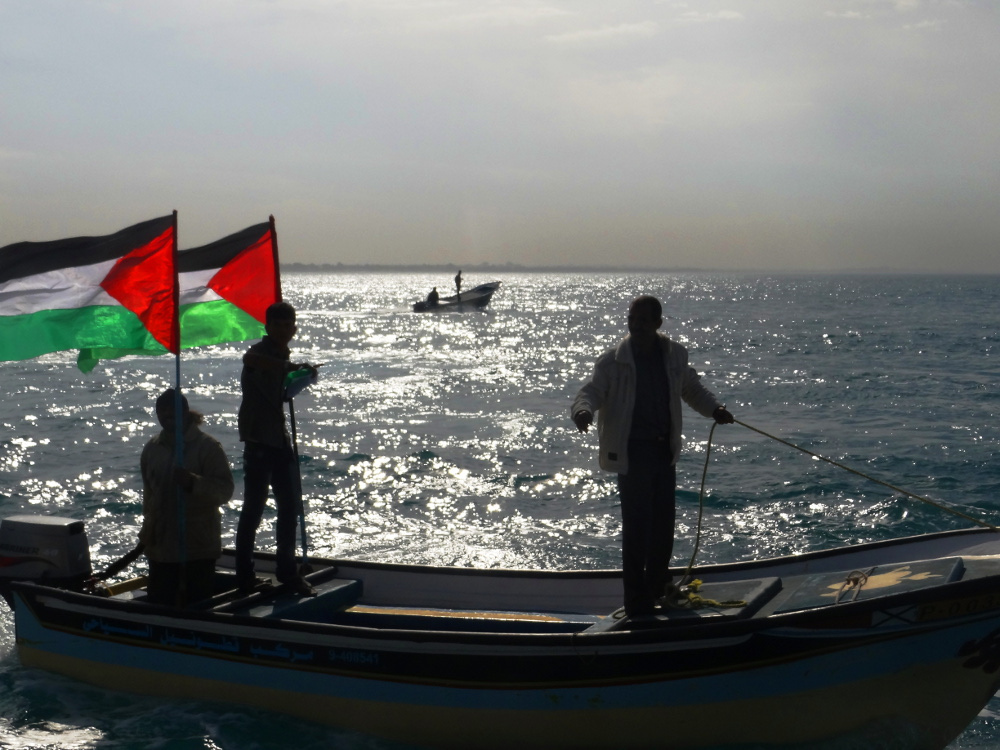Tag: Fishermen
-
Under Israeli fire, Gaza fishermen plan protest tent to “free the Holy Land sea”
12th December 2013 | Free the Holy Land Sea | Gaza, Occupied Palestine For Immediate Release Contacts: Zakaria Baker (Arabic) zakarea-1010@hotmail.com Khalil Shaheen (Arabic, English) khalilshaheen@yahoo.com On Tuesday, 17 December, Palestinian fishermen will pitch a protest tent in the Gaza seaport. The structure, which will stand for three days and be decorated with pictures of fishermen attacked…
-
Photos: A visit to the Gaza fish auction
10th December 2013 | International Solidarity Movement, Charlie Andreasson | Gaza, Occupied Palestine Gaza’s fish action brought back memories from both my time as a fisherman and my work in the port of Gothenburg. There was the same crowding around the neat rows of boxes, filled with different types of fish and shellfish, the auctioneer’s pad…
-
Photos: Palestinian fishermen and activists sail to protest Israel’s siege of Gaza
4th December 2013 | International Solidarity Movement, Charlie Andreasson | Gaza, Occupied Palestine On Monday, 2nd December 2013, 200-250 Palestinians, foreign activists and journalists, many from international media, gathered in the Gaza seaport for a joint action to alert the world about the siege and its consequences for fishermen pursuing their profession. The action resulted from…



